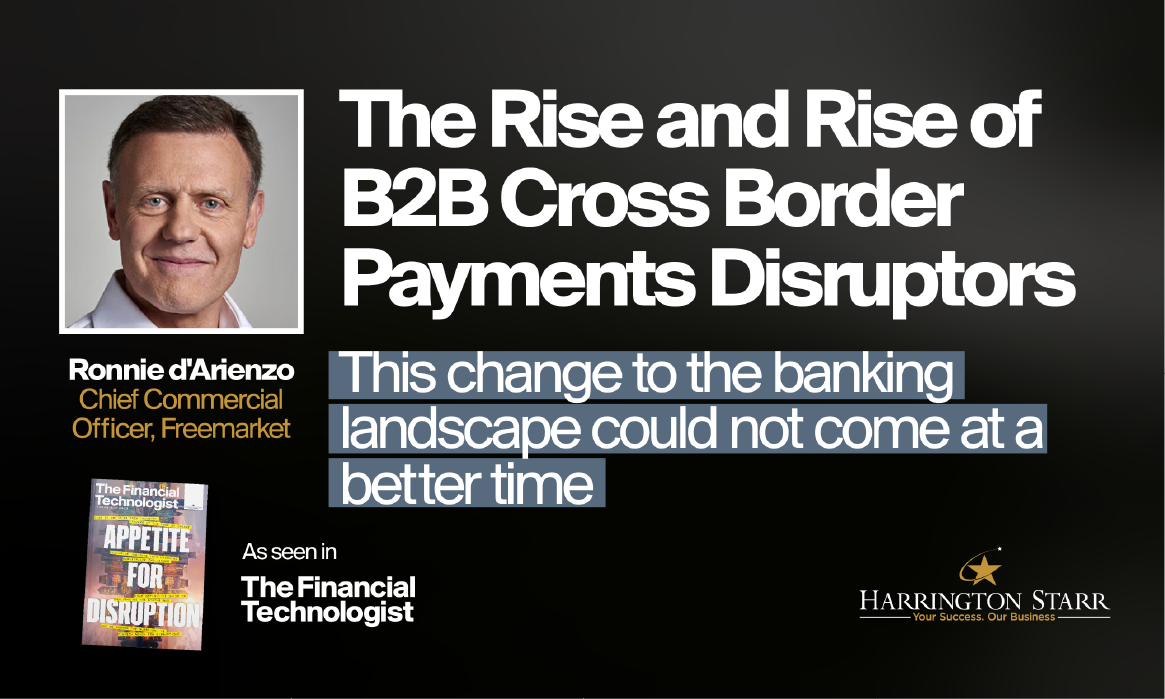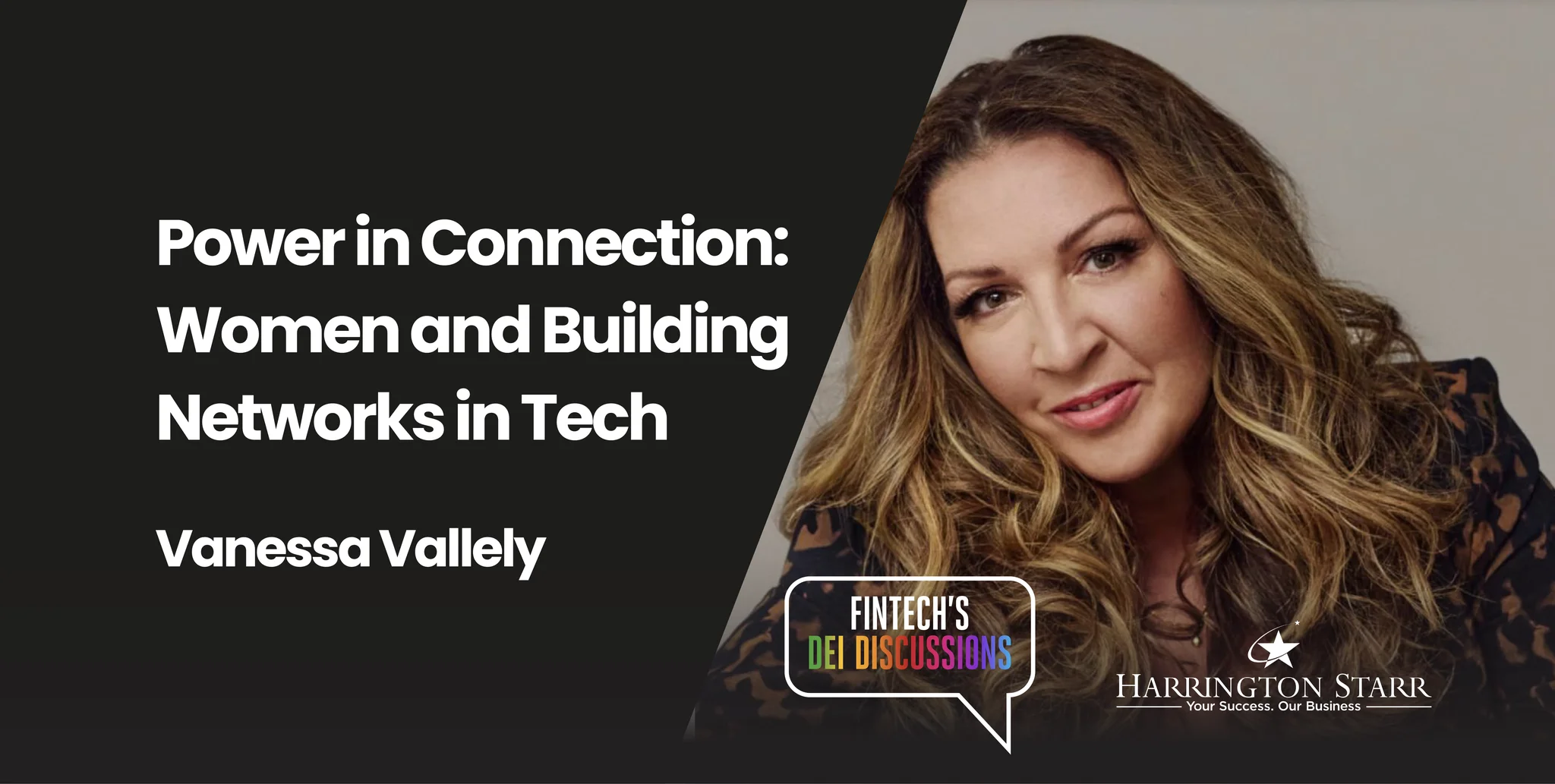In recent years, the global payments landscape has evolved tremendously, with the most recent changes driven by the advent of B2C ‘disruptors’ in e-commerce and e-payments, from Amazon and Google to PayPal and WorldPay.
While it is hard today to imagine how any of us managed without online shopping channels and associated instant payments, even across borders (for example, when making purchases in China or the US), the traditional B2B payments segment has still to navigate myriad regulatory and compliance challenges - and processing inefficiencies – that are a source of continuing frustration for many corporates and small businesses with international payments needs.
Of course, this situation is changing, particularly as a result of the growing contribution and influence of fintech ‘disruptors’ in what was hitherto a bank-exclusive ‘closed shop’. In the past few decades, FinTechs have built a solid presence and reputation within financial markets generally and the banking industry specifically.
As their profile and influence has grown, and their role has shifted from ‘third party service providers’ augmenting banks’ product and service offerings to financial markets participants in their own right, FinTechs are increasingly acknowledged by regulators and other industry ‘overseers’ as legitimate financial service providers, rather than actors on the fringe of the industry.
Trying to take the challenge of cross-border payments and transform it into a wholly new system overnight is unrealistic. Luckily, the rise of FinTechs and the introduction of regulatory changes focused more on interoperability present a promising future that can greatly benefit SMEs.
In our recently published (June 2023) eBook, Simplifying the Complexity of Cross-Border Payments for SMEs we observe that there are many reasons why the B2B commercial payments experience should seem so out of sync with that experienced by retail consumers. It is also the case that the B2B customer experience can vary enormously depending on the nature, size and risk profile of the ‘corporate’ entity.
A key area where non-bank Payment Service Providers (PSPs) have sought to differentiate themselves from the traditional, bank-led, cross-border payments segment is by targeting and supporting customer segments typically underserved by bank providers - namely SMEs and other businesses considered too high risk and too ‘needy’ compared to bigger (and ‘safer’) business entities.
In 2022, it is estimated that UK-based SMEs accounted for more than 99% of the business population, which, according to the Department of Business, Energy, & Industrial Strategy makes them a huge source of revenue and employment. (These statistics apply globally – around 90+% of the global economy is SME-generated).
It is, however, a truth universally acknowledged that SMEs continue to be underserved by traditional correspondent bank networks, because they are simply too small to want (or need) the full suite of international banking services e.g. treasury, liquidity, lending, FX, asset management etc., but instead seek more agile and flexible, ‘as a service’ payments and cash management partnerships. Consequently, they very often find that they do not meet many banks’ account profitability models, or are expected to pay a premium for the privilege of being ‘taken on’.
Supporting expansion strategies of underserved SMEs
Despite apparent resistance among traditional financial institutions to supporting them, SMEs are invaluable to economic growth, both domestically and in terms of their cross-border expansion ambitions and endeavours. SMEs' abilities to expand into new markets is crucial to boosting revenues and to leveraging new business opportunities that contribute to (and support) domestic and regional economies. Yet even as SMEs are looking to expand into new markets, global economic headwinds, regional geopolitical events, domestic inflation-busting and recession-mitigating measures – alongside the perpetual challenge (nightmare?) of thwarting money laundering and wide scale payments frauds - are driving down traditional banks’ risk appetites even further.
This reluctance among traditional banks to partner with SMEs leaves many businesses at a loss when it comes to meeting their growing cross border payments needs; they can find that they simply don’t have (and can’t afford) the banking relationships necessary to access a global ‘correspondent banking’ network effectively and efficiently, nor the inhouse technical resources and nous to build such a network themselves using one, or a combination of, today’s open banking apps.
B2B banking decisions are also impacted inherently by a shift in consumer preference from big global banks to digital-first providers. While they may not have sufficient internal resources or knowhow to build their own international payments solution, what many of these businesses – and particularly those in the gaming, gambling, crypto and other digital-first business segments - do have is a workforce and customer base that is increasingly au fait with easy and instant access to instant international payments infrastructures.
It has to be recognised that the people making major financial decisions at SMEs and other corporations will increasingly reflect ‘next generation’ Millennials and GenZ-ers that have grown up in the ‘digital age’ and with an innate understanding of technology as the ultimate ‘enabler’.
As Jamie Broadbent of RBS observed at Fintech Connect 2022 “The reality is that this next wave of consumers, the youth of today, have no relationship with those banking brands, but they’re super familiar with the digital-first players, the digital platforms like [Amazon, Meta, and Google]. And the reality is that if we’re going to keep that next generation of consumers, then we’ve got to make clear the value that we bring. We’ve got to meet them in the channels where they already are and speak to them in the trusted voices that they recognise.”
As part of this paradigm shift, the whole concept of having to set up formal business bank accounts to make international payments has also been turned on its head by today’s fintech disruptors. Traditionally, any SME considering operating across borders would be required (at a minimum) to have an official bank account with an established bank, and quite likely additional accounts with other ‘correspondent’ (international) banks.
Today, FinTechs offer SMEs the ability to set up multi-currency payment accounts, regardless of whether or not they have a formal business banking account or access to traditional banking services. Instead, and through a single connection, FinTechs like Freemarket connect SMEs to established global banking networks – both traditional financial institutions (FIs) and more modern non-bank financial institutions (NBFIs) – for fast, assured cross border payments, with integrated and innovative anti-fraud and risk management solutions.
Fintech disruptors reshaping the cross-border payments ecosystem
The rise and rise of fintech PSPs, and digital payment solutions, are reshaping cross-border payments and importantly, driving change in the wider and deeper global banking model.
This change to the banking landscape could not come at a better time, given recent bank collapses and dramas like Credit Suisse, Silicon Valley, Silvergate and Signature Banks — that have rocked B2C and B2B customers’ confidence in banking providers to the core. As a result of this diminished trust, fintech providers can not only step into the role of technology experts but can also help to rebuild the broken dynamic between SMEs and banks, engendering greater payments service diversification and overall stability.
With so many factors impacting the international payments landscape, SMEs will choose providers that go above and beyond one-size-fits-all payment strategies, instead taking a more nuanced approach that assesses the specific needs of the SME and can map it to the regions into which it wishes to expand.
As Freemarket’s Chief Banking and Product Officer, Mike Whitehead, pointed out in a recent C-suite Fintech Connect podcast: “To be able to satisfy today’s customer demand, you need to be quick to market and you need to be able to flex to customer requirements. While this can be challenging with legacy technology platforms, it lends itself to fintech disruptors that are by definition better able to adapt and respond to changing payments trends.
At the same time, and in the spirit of collaboration (not competition), FinTechs continue to develop and nurture relationships with traditional banks, banking networks and payments rails, because they understand absolutely that flexibility and interoperability are the most important elements of an effective and efficient global payments infrastructure and a more resilient global economy.”
By Ronnie d'Arienzo, Chief Commercial Officer at Freemarket. Article from Harrington Starr's The Financial Technologist Magazine, Appetite For Disruption.
Read more articles like this in The Financial Technologist Magazine. Download your free copy here.







